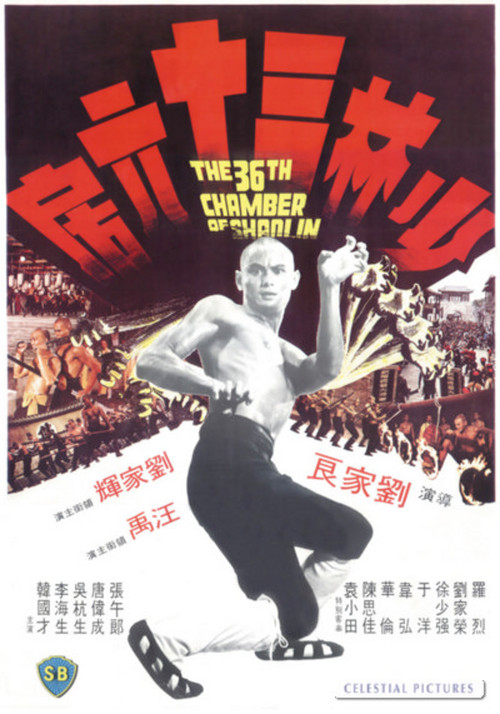

Runtime
Category
Language
Director
Actors
The 36th Chamber of Shaolin
Watch it Later
Watch it On
What's it About
After his family is slaughtered by a marauding band of Manchu troops, gentle Chinese scholar Liu (Liu) journeys to a Shaolin temple, intent on learning martial arts so he can exact revenge. Rebuffed at first, Liu is finally accepted as a novice. After years of excruciating endurance tests and rigorous training, he becomes the temple's greatest practitioner. But when he demands to instruct the masses in the art of self-defense, he is cast out.
Why we love it
Thanks to its intense young star and a script that emphasizes the slow, painstaking development of a Shaolin warrior, Chia-Liang Liu's "36th Chamber" is regarded as one of the finest kung-fu movies of the 1970s. Its patriotic political subtext — resistance to Manchu aggression in the early Qing dynasty, and Liu's forbidden efforts to raise an army from the Cantonese peasants — is ripe, and probably resonated with Chinese audiences. But it's our sense of identification with Liu as he progresses from the lowest chamber (floor scrubbing) to the highest (boxing a giant iron pendulum) that really leaves an impression today.
